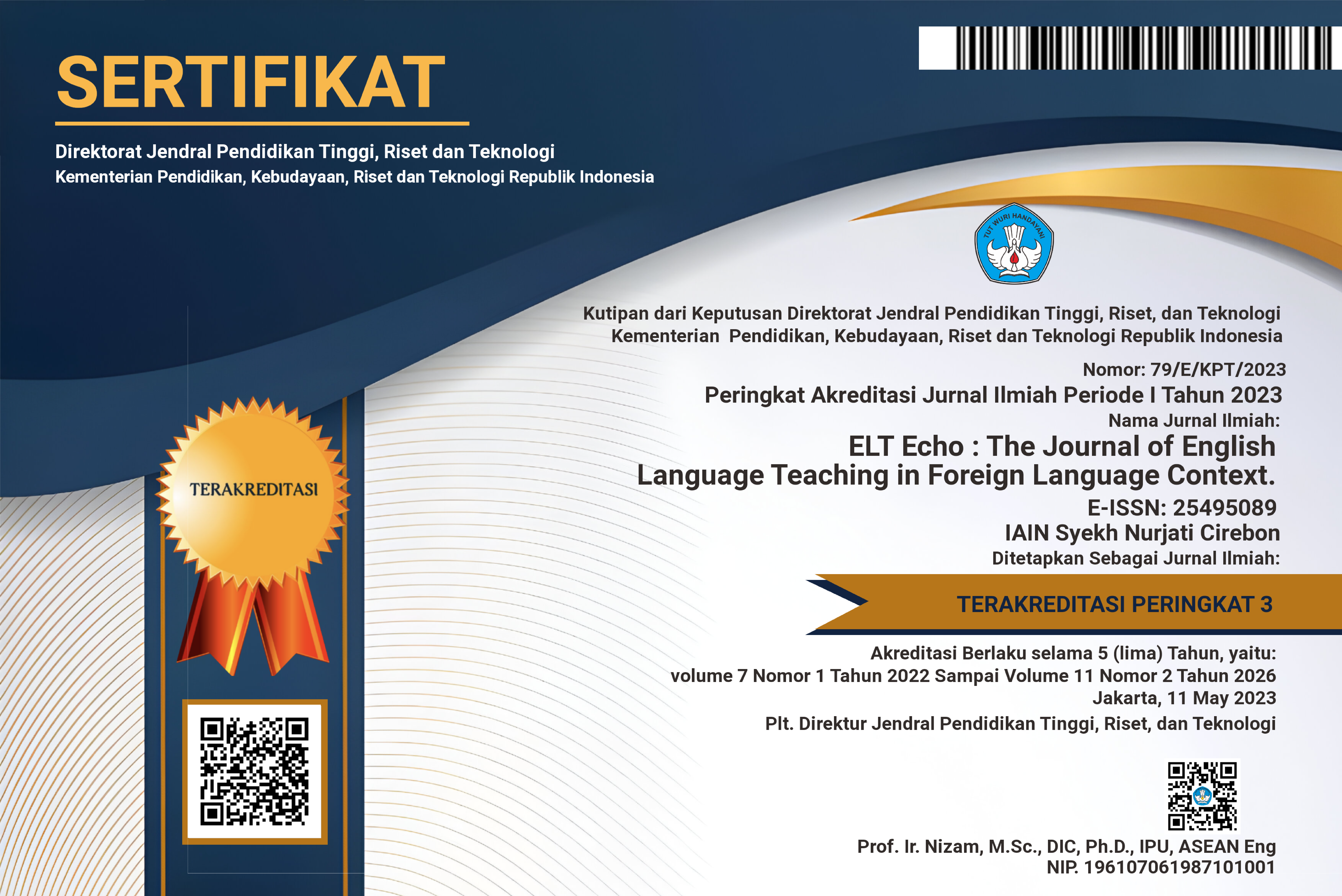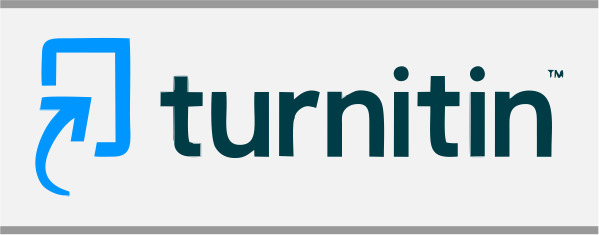CHATGPT IN HIGHER EDUCATION: A REVOLUTION IN WRITING OR A RISK TO ORIGINALITY?
(1) Universitas Islam Negeri Maulana Malik Ibrahim Malang
(2) Universitas Islam Madura
(3) Universitas Islam Malang
(*) Corresponding Author
Abstract
Full Text:
PDFReferences
Cassinadri, G. (2024). ChatGPT and the Technology-Education Tension: Applying Contextual Virtue Epistemology to a Cognitive Artifact. Philosophy & Technology, 37(1), 14. https://doi.org/10.1007/s13347-024-00701-7
Derakhshan, A., & Ghiasvand, F. (2024). Is ChatGPT an evil or an angel for second language education and research? A phenomenographic study of research‐active EFL teachers’ perceptions. International Journal of Applied Linguistics, 34(4), 1246–1264. https://doi.org/10.1111/ijal.12561
Fassbender, W. J. (2024). “I can almost recognize its voice”: AI and its impact on ethical teacher-centaur labor. English Teaching: Practice & Critique, 23(1), 104–117. https://doi.org/10.1108/ETPC-08-2023-0101
Javier, D. R. C., & Moorhouse, B. L. (2024). Developing secondary school English language learners’ productive and critical use of CHATGPT. TESOL Journal, 15(2), e755. https://doi.org/10.1002/tesj.755
Jomaa, N., Attamimi, R., & Al Mahri, M. (2024). The Use of Artificial Intelligence (AI) in Teaching English Vocabulary in Oman: Perspectives, Teaching Practices, and Challenges. World Journal of English Language, 15(3), 1. https://doi.org/10.5430/wjel.v15n3p1
Jomaa, N., Attamimi, R., & Al Mahri, M. (2024). The Use of Artificial Intelligence (AI) in Teaching English Vocabulary in Oman: Perspectives, Teaching Practices, and Challenges. World Journal of English Language, 15(3), 1. https://doi.org/10.5430/wjel.v15n3p1
Juanda, R., & Afandi, M. (2024). Enhancing academic writing skills with AI: An empirical study. Higher Education Research & Development, 42(4), 203-220. https://doi.org/10.3456/herd.v42i4.3456
Leong, K. (2023). Digital literacy and AI writing tools: Implications for education. Computers & Education, 190, 104623. https://doi.org/10.1016/j.compedu.2023.104623
Li, J., Huang, J., Wu, W., & Whipple, P. B. (2024). Evaluating the role of ChatGPT in enhancing EFL writing assessments in classroom settings: A preliminary investigation. Humanities and Social Sciences Communications, 11(1), 1268. https://doi.org/10.1057/s41599-024-03755-2
Li, Q., Tarp, S., & Nomdedeu, A. (2024). The Necessary Symbiosis: How ChatGPT Co-authored a New Type of Learner’s Grammar to Be Displayed in a Digital Writing Assistant. Círculo de Lingüística Aplicada a La Comunicación, 100, 145–160. https://doi.org/10.5209/clac.97409
Liu, J., Ma, X., Wang, L., & Pei, L. (2024). How Can Generative Artificial Intelligence Techniques Facilitate Intelligent Research into Ancient Books? Journal on Computing and Cultural Heritage, 17(4), 1–20. https://doi.org/10.1145/3690391
Liu, M., & Reinders, H. (2025). Do AI chatbots impact motivation? Insights from a preliminary longitudinal study. System, 128, 103544. https://doi.org/10.1016/j.system.2024.103544
Mollaki, V. (2024). Death of a reviewer or death of peer review integrity? The challenges of using AI tools in peer reviewing and the need to go beyond publishing policies. Research Ethics, 20(2), 239–250. https://doi.org/10.1177/17470161231224552
Mohsen, M. (2024). Artificial Intelligence in Academic Translation: A Comparative Study of Large Language Models and Google Translate. PSYCHOLINGUISTICS, 35(2), 134–156. https://doi.org/10.31470/2309-1797-2024-35-2-134-156
Xiao, Z., & Zhi, H. (2023). The intersection of AI and education: Evaluating logical reasoning in student writing. Educational Review, 35(1), 102-119. https://doi.org/10.2345/er.v35i1.2345
Zhao, X., Cox, A., & Cai, L. (2024). ChatGPT and the digitisation of writing. Humanities and Social Sciences Communications, 11(1), 482. https://doi.org/10.1057/s41599-024-02904-x
DOI: 10.24235/eltecho.v10i1.19826
Article Metrics
Abstract view : 73 timesPDF - 13 times
Refbacks
- There are currently no refbacks.
Â
This Journal is indexed by:
Â

This work is licensed under a Creative Commons Attribution 4.0 International License.










